Best Therapists for Abuse Counselling
The meaning of abuse is to use force, power, violence, or words against a person...read more
People Treated
Satisfaction
The meaning of abuse is to use force, power, violence, or words against a person...read more
People Treated
Satisfaction

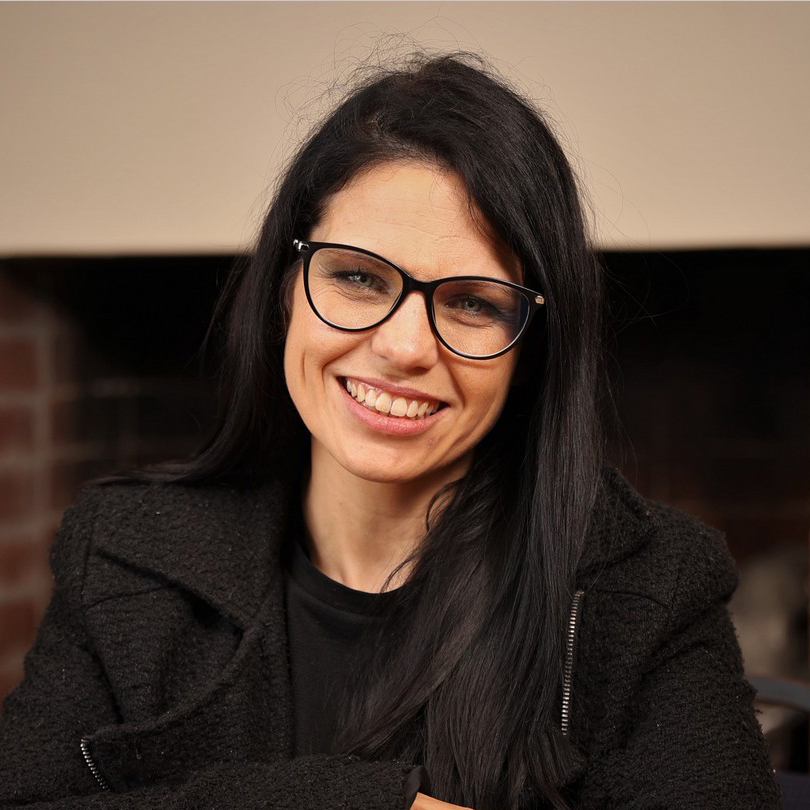
Psychodynamic Therapist & CBT Practitioner
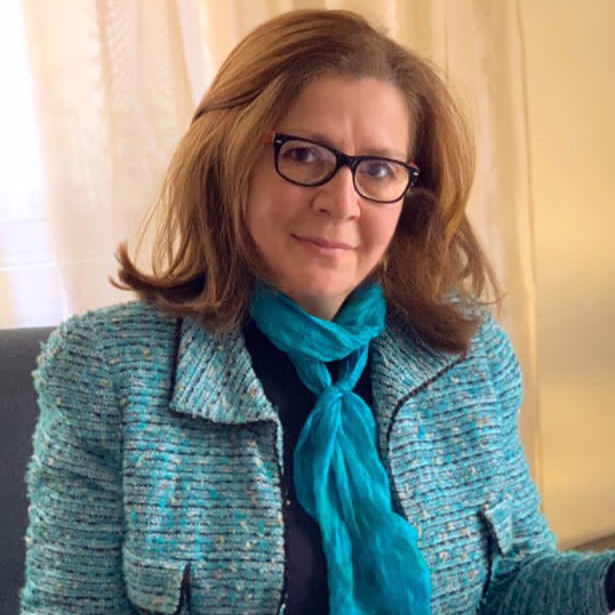
Clinical Psychologist & IPT Provider

Counselling Psychologist

CBT Practitioner & Gestalt Psychotherapist

Psychologist

Clinical Psychologist

Adult and Old Age Consultant Psychiatrist
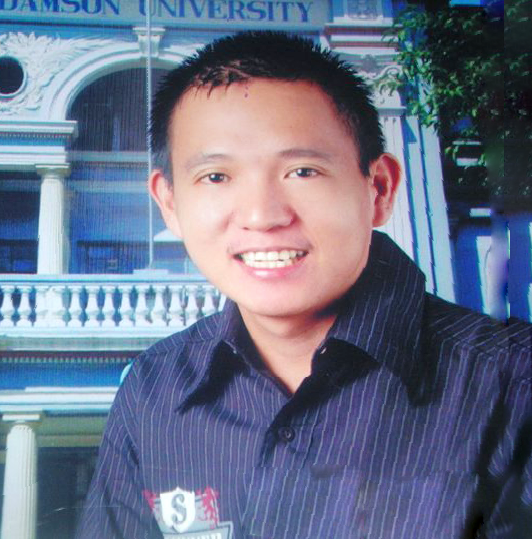
Psychotherapist & Counseling Psychologist
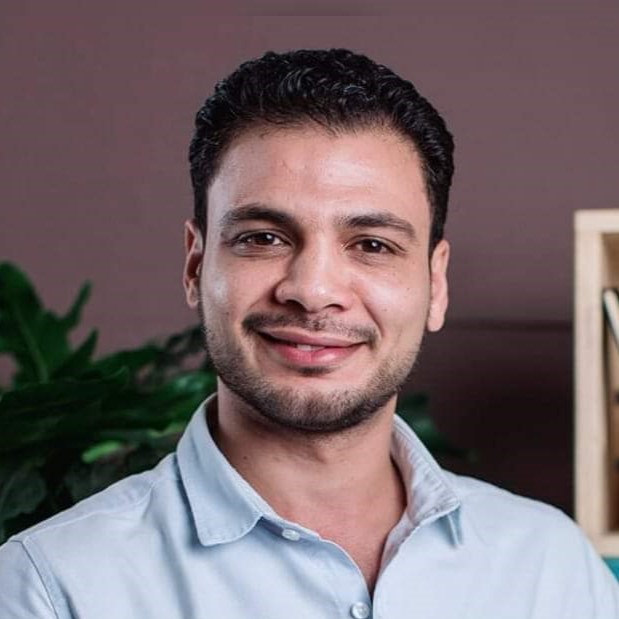
Therapist
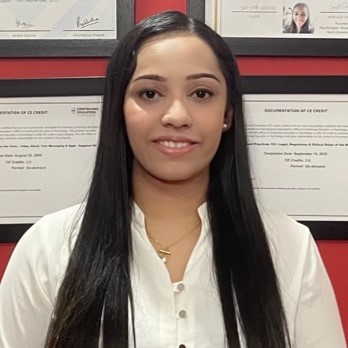
Clinical & Counselling Psychologist

Our psychologists provide professional counseling that is efficient, cost-effective and customized to your needs.
Feeling down due to an undiagnosed condition
One-to-one scheduled sessions with a verified Fitcy counselor, diagnose your issue and take baby steps towards improvement
You turn over a new leaf with significant improvements - meet the new you!
Get in touch with a therapist today, and never let anything hold you back.
First time from a long time to speak to someone understand me without talking alot
Always look forward to my sessions.
Daiana is a great listener, very empathetic towards my situation. She tries to come up with various ways to identify the problem and provide a solution.
I love how deeply he goes into what I say. The questions he asks to teach how I really feel about everything is immensely helpful.
kelsey is great with providing some technical solutions for the topics we discussed.
Though we aware following what he said. His input validated what we were doing. We did receive help with other aspects such us sibling rivalry and how to go about our child's education. I think Mr Theo is a pleasant and very helpful person. Would definitely recommend him to others.
My sessions were great, my therapist is very helpful and motivating.
Welcoming, calming, gentle.
I had a wonderful and constructive sessions with Manuel and Fitcy. I found Manuel to be very affable and he gave me the freedom to conduct our sessions in a pace where I am comfortable, this made it easier for me to discuss things i normally would not. My counseling was intended to focus solely on my stress triggers, but Manuel dug deep into my past and origins and helped me understand my issues and myself better. I would unquestionably advise Manuel to anyone trying to work through issues in therapy since he is very light to deal with, understanding and never judgmental."
I am very grateful that I made my life coaching session with Ms Beverly and to your team can say Thank you very much for helping me all the way of my session. Every session has a fruitful meaning in my life journey, a journey that I get more attached with God and positivity in life. I great attachment which I will carry on from the rest of my new journey. Its sad to say that I ended up already my 4 sessions however it was replaced of enlightenment courage what life it could be. Im wishing you(Ms Beverly) and the rest of your team to help more people experiencing difficulties straggle’s in life to enlighten and courage to love their life journey more positive way and attached to Gods purpose of life. Thank you very much and Godbless us all. ♥️
She’s amazing. Very understanding, very attentive, very smart.
Very comfy sessions and the therapist was hyper nice and knowledgeable
My sessions have been going well so far and I’m learning so much about my feelings, etc. I feel like I can count on someone when I’m dealing with problems and to see how I can cope with them.
Honestly speaking she’s probably the best therapist I’ve ever had, if you’re looking for cbt and recovery from anxiety and ptsd she’s the one to go for. But even if you’re struggling with anger and depression, separation, commitment, family and relationship problems she’s the one to go for. I tried so many different online services and offline similarly but started to give up until I actually gave fitcy health a go who matched me up with Elena. I’ve improved a lot even my friends and family notice it. No words would describe how much I really appreciate what Elena does and has done so far. I was dreading the feedback part because I was afraid of not having much time with her but seriously I wouldn’t want those who also need the help to miss out on what she has to offer and the management told me I don’t have to worry about that 😂. Elena, you are amazing!
Suzzanne is a good listener… Try her best to guide me through the therapy journey but with no judgment and with great support without making me feel negative about me or about my partner.
"Naina has been just amazing at what she does. She's always on her toes to figure out a way for all the problems I face.."
I am grateful to have a safe, non judgmental, healthy space where I can fully be myself
I am so relieved with her, she understand where I come from, also she respect my way of expressing things, she is very easy discussing my ideas, the homework she gave helps me to open my heart and mind for different direction, am attending to continue with her for more seasons.
"My sessions were very good. He is very caring and he listened carefully and I felt comfortable. He never saw himself someone who is better than me or look down in me. Actually, that was the most important thing to me. He showed me his interest in listening to me and that he understand what I felt which made me feel relive"
Gaston listens and gives advice in a non-judgmental and kind way. He makes me realize and understand different point of views and helps me think differently from what I’m accustomed to.
Very well done. Fatima helped me through a lot.
I have been putting therapy off for about 2 years. I've always had anxiety, and occasional panic attacks due to a lot of internal and external issues with life, and basically adulthood. The catalyst was actually starting my new job. It was a whole shift and I had to make major adjustments with my life and relationships. I'm only 2 months in, and already handling more than what I'm supposed to. I found myself crying day in and day out because of this, and I would isolate myself away from family. Nathasha listened with an open mind and heart, and had compassion and empathy. She gave me tips on how to better handle myself in situations during a panic/anxiety attack, and communication tips with my boss (who is my biggest obstacle at the moment). It's only been one session, but I can't wait for the next!
Amazing, has helped me work through lots of things, attentive and very supportive.
honestly idk where to start, fitcy helped me find gastón and he saved my life, i have been looking for affordable therapy for soo long and for years i wasn’t able to find until i found fitcy, then found my amazing therapist gastón, i love how flexible fitcy and gastón are
She is an excellent psychologist, really smart and insightful. She is definitely well-experienced as a psychologist as she able to understand and respond very well to my thoughts and emotions. I would definitely recommend her.
The sessions were really helpful, it made me understand myself more and I had a noticeable improvement with my mental health.
Seeing therapists can be daunting, Gaston makes it easy. He gets it, is able to help me break things down and work through everything, he’s brilliant!
There are many methods that couples counselors can fix. Still, some prominent abuse methods are physical abuse, domestic violence, sexual abuse, psychological or emotional abuse, financial or material abuse, modern slavery, discrimination, and organizational or institutional abuse.
Abuse can affect isolation, distrust, and fear, leading to long-lasting psychological consequences in education difficulties, extremely low self-esteem, severe stress, or depression. It might be troublesome to maintain a happy and stable relationship.
A Fitcy abuse counselor helps patients overcome their challenges and address their symptoms. Even abuse counseling therapy also help those who are still engaged in abuse and helps their patient to stop that by using psychological tools and techniques.
Abuse trauma can survive for years, but experimenting with evidence-based treatment can help stabilize it and make it manageable for some or even decades. Abuse counselors determine the intensity of trauma and deal according to what might trigger it in the future.
The meaning of abuse is to use force, power, violence, or words against a person or animal to hurt them physically, mentally, or both. Abuse can be done to gain pleasure or power but can be a part of cultural norm as well.
There are many different types of abuse, and some are considered criminal activities as well. Abuse generally is directed at the marginalized and vulnerable segments of the society, like women and children. In UAE, as per Khaleej Times, 75% of the registered abuse cases pertained to women.
Abuse can manifest in different capacities, which include:
Child abuse is a type of neglect. In this abuse, a minor is not given enough basic resources to survive. Or they are not given emotional support. Some forms of child abuse also include:
A conservator is an aide for the elderly, and when they abuse their position, it is called conservatorship abuse. The abuse can take any of the following forms:
Domestic abuse, also known as intimate partner violence, is inflicting harm to one’s partner. The harm may be physical or psychological. Some ways the victim is abused include:
Emotional and verbal abuse harms the psychological health of the person. They are emotionally exploited. Hurtful and dangerous words are used against them. Examples of emotional and verbal abuse include:
Mental abuse is when a person’s mental health and wellbeing are jeopardized using force, coercion, manipulation, etc. The victim ends up blaming themselves and doubting their sanity.
Since their judgement is harmed in mental abuse, they start thinking they deserve the abuse, or no one will believe them anyway. Hence, mental abuse is dangerous, and torturous. Some examples of mental abuse include:
Physical abuse is the use of force against the other person to harm them physically or making them feel unsafe. Some forms of physical abuse include:
Sexual abuse includes sexual violence of any sort, including sexual coercion, marital rape, rape, etc. It also includes having relationships with a minor. Sexual abuse violence that is physical and psychological.
Examples of sexual abuse include:
In some cases, the perpetrator might be conducting the acts of abuse without knowing that it is form of abuse. It can be due to their own trauma, cultural practices, or conditioning. In such cases, it is referred to as unintentional abuse, as it occurs due to normalization of the various act of violence.
Even though the issue is complex, there are some ways that you can play a role in stopping sexual abuse. These include:
Stopping abuse requires individual as well as collective effort. Some helpful steps include:
Some signs that a child may be abused include:
The exact response to abuse is contingent on the type being suffered. Moreover, responding to and dealing with abuse is a complex issue, as one’s sanity and safety are on the line. Many victims are also financially beholden to their abusers, due to which they cannot make an exit.
Hence, there are no fixed steps to dealing with abuse. But some things that you can do include:
Many victims try to cover the abuse, as they are afraid. But you need to tell your friends and family; you need a safe place.
Go to the police or the authorities like your management and lodge complaint. Paperwork is important, especially when the activity is criminal and there will be legal proceedings against it. Moreover, tell the police if you fear for your life.
It helps to have your finances sorted, so that you do not have to stay in the relationship. If there are any weapons in the house, remove them.
Having an escape plan or an exit strategy is helpful. It allows you to make a quick getaway.
An abuser will not speak logic to you. So, do not engage with them, no matter how coercive they might be.
Victims of abuse have a lot of physical and psychological trauma. Getting help is imperative. Since there is a lot of fear of the outside, platforms like Fitcy Health that operate remotely are excellent resources, as the victim gets help from the safety of their own space.
![]() Abuse
Abuse
![]() Addictions
Addictions
![]() Anger Management
Anger Management
![]() Autistic Spectrum
Autistic Spectrum
![]() Behavioral Health
Behavioral Health
![]() Boost Productivity
Boost Productivity
![]() Burnout
Burnout
![]() Career Coaching
Career Coaching
![]() Confidence
Confidence
![]() Crisis Intervention
Crisis Intervention
![]() Dealing With Long-term Illnesses
Dealing With Long-term Illnesses
![]() Divorce Counselling
Divorce Counselling
![]() Emotional Self-regulation
Emotional Self-regulation
![]() Existential Crisis
Existential Crisis
![]() Family Counselling
Family Counselling
![]() Grief
Grief
![]() Healing Negative Past Emotions
Healing Negative Past Emotions
![]() Hypnotherapy
Hypnotherapy
![]() Hypochondriasis
Hypochondriasis
![]() Improving Communication
Improving Communication
![]() Infertility Counselling
Infertility Counselling
![]() LGBTQ+ Counselling
LGBTQ+ Counselling
![]() Low Self-Esteem
Low Self-Esteem
![]() Mood Disorder
Mood Disorder
![]() Parental Counselling
Parental Counselling
![]() Personality Disorders
Personality Disorders
![]() Phobias
Phobias
![]() Postpartum Depression
Postpartum Depression
![]() Pre-Marital Counselling
Pre-Marital Counselling
![]() Procrastination
Procrastination
![]() Psychosis
Psychosis
![]() PTSD
PTSD
![]() Relationship Issues
Relationship Issues
![]() Schizophrenia
Schizophrenia
![]() Self-Harm
Self-Harm
![]() Sexual Assault
Sexual Assault
![]() Sexual Intimacy Issues
Sexual Intimacy Issues
![]() Suicidal Tendencies
Suicidal Tendencies
![]() Trauma
Trauma
![]() Work-Stress
Work-Stress
4 sessions for AED 716 in monthly package
[/CBC]
[CBC country=”sa” show=”y”]
4 sessions for SAR 716 in monthly package
[/CBC]
[CBC country=”qa” show=”y”]
4 sessions for QAR 716 in monthly package
[/CBC]
[CBC country=”ae, sa, qa” show=”n”]
4 sessions for USD 196 in monthly package
[/CBC]
4 sessions for AED 1116 in monthly package
[/CBC]
[CBC country=”sa” show=”y”]
4 sessions for SAR 1116 in monthly package
[/CBC]
[CBC country=”qa” show=”y”]
4 sessions for QAR 1116 in monthly package
[/CBC]
[CBC country=”ae, sa, qa” show=”n”]
4 sessions for USD 300 in monthly package
[/CBC]
4 sessions for AED 1516 in monthly package
[/CBC]
[CBC country=”sa” show=”y”]
4 sessions for SAR 1516 in monthly package
[/CBC]
[CBC country=”qa” show=”y”]
4 sessions for QAR 1516 in monthly package
[/CBC]
[CBC country=”ae, sa, qa” show=”n”]
4 sessions for USD 416 in monthly package
[/CBC]
An introductory session is a 15 to 20 mins session, with the main goal of getting to know your specialist. You can speak about your goals, what you’re searching for, and understand if this specialist is the right fit for you or not.
Our 1-month package consists of 3 video/audio call live sessions (i.e. 1 every 10 days) & unlimited messaging with any specialist of your choice. Each live session is between 45 – 60 mins in length. When choosing to book, you book your first session now on checkout & the other 2 sessions are booked from your customer dashboard.
Majda is a holistic & integrative coach. She focuses on helping clients realign with their body and its inner guidance. She has studied movement, expression, psychology, and psy-shamanism (i.e. emotional recovery and the workings of the mind) for many years.
Although her qualifications came at a later stage, Majda has been on an intense journey of self-discovery and self-realization since age 16. Her clients testify to her sharpened perception which allows her to look into the depth of her clients’ reasoning and the truth in it, this helps them cleanse their preconceived beliefs and attitudes, which the mind has not registered yet.
Working with Majda will help you identify and release the stress in your body and mind. Her method is to help you recognize your inner critic and work with it, rather than object to it. She will listen and ask you questions that will thoroughly clarify your mind, desires, and hone in on your own inner guidance. She works with clients to help them discover the life they want to live and how to practice self-love throughout.
With such in-depth knowledge and expertise, she dives into your story and helps you go through and solve any obstacles, challenges, or problems you are facing. Majda has helped her clients feel more empowered, grounded, guided, and clear about anything they perceive in their world whether it be physical, mental, or emotional. Join her in this journey to improve your confidence, knowledge, and the communication you have with yourself and the outer world.
Expertise:
Performance coach; depression, anxiety and somatic experiencing; life coaching; logic and love; relationship coaching; mental health advisor and emotional recovery coach; theta healing
Years of Experience:
4+
Languages Spoken:
English, French
Top 5 goals that people have achieved with me:
1. Improving communication and (self) trust
2. Clearing mind patterns, beliefs, needs, wants and goals
3. Understanding cause and effect on a personal level and use of it
4. Learning to release trauma from the body and stay focused and inspired
5. Learning self-love, appreciation, and carving individualism and performance
What I’m excited to bring to Fitcy Health members:
To Fitcy Health members, I am excited to bring them an understanding of their motivations, a healthy and centered mindset with inspiration, cognitive understanding of their motives and direction, confidentiality, approval, fusion, and support for their goals on the physical and material plane, as well as on their emotional one i.e. spiritual challenges/problems and journey, improvement in communication within any personal or professional relationships, knowledge, and last but not least orientation if needed. I’d like them to feel comfortable and safe with me, inspired and more knowledgable of their own, and the collective subconscious. I am excited to bring them one of the most revolutionary and useful methods and tests for self-discovery and direction. I am very perceptive, for me, it is important that any client gets more attuned to his or her body and its inner messages, more faithful, and softly experience emotional and psychological changes and transformation if needed. They will have the opportunity to get knowledge of their (deepest) needs and consciously choose to meet them, or openly and trustfully receive anything that God / Universe / Life brings. I’d like to help Fitcy Health’s members live more ecstatically, become in love with their bodies, mind, and soul, live in unity with their instincts, fears and most importantly have the benefits of all my teachings & experience.
Favorite Quote:
“In the acceptance and integration of uncertainty, rises certainty.”
My name is Haydee I have been leading people through personal development from a young age. I help people in their lives by changing the way they think. In my early 20’s I discovered the practice of Yoga and I have used it to develop my body, mind and soul. I learned I could heal myself by releasing emotions, sensations and thoughts. When I began my practice, a new world and perspective of seeing life came into my eyes. My classes are powerful, challenging and invigorating I help you in building mental, physical strength and endurance. All the more its a perfect combination of workout with spiritual development.
Expertise:
Ashtanga yoga, vinyasa yoga, breath work, mindfulness
Years of Experience:
9+
Languages Spoken:
English, Spanish
Certifications:
Paramanand Institute of Yoga Sciences and Research, Ashtranta, GAVY 200
What I’m excited to bring to Fitcy Health members:
I invite you to experience the transformational journey of yoga with me. We will work from the inside out. Not only will you feel better and energized, you will look amazing & shine your light into the world.
Favorite Quote:
“Be like a lit candle in a dark room, wherever you go you take people out of darkness”
I have a passion for Human anatomy & am a Mechanical Engineer by profession. I combined my passion with my profession and now apply biomechanics to human body analysis, this allows me to see how your performance can be improved. Along with my regular training, I conduct Posture awareness and correction workshops for the industrial sector and for children.
Expertise:
Yoga (Hatha/ Vinyasa/ Ashtanga), Cardio (Basic low impact/ Circuit training/ HIIT), Strength training using body weight/external resistance, Injury Rehabilitation, Sport Specific programs, Body alignment and Balance
Years of Experience:
4+
Languages Spoken:
English, Hindi
Certifications:
200 TTC in Hatha, Vinyasa and Ashtang, K11 Personal Training course, ACSM workshops and symposium, Barefoot, ACSM, NSCS
What I’m excited to bring to Fitcy Health members:
I feel having knowledge of just one form of fitness is not enough for a safe training session. For the same, I have studied different types of Yoga, strengthening to injury rehab. After a student’s body analysis I combine elements from all these and design a customized, medically safe program. All my workouts are focused on Posture and core.
Kartikey and her partner Sylvia received advanced training directly under Dr. Paul Lam, a world-renowned Tai Chi & Qi Gong exponent and a family physician from Australia. Kartikey and Sylvia started their Tai Chi & Qi Gong journey when they were working as IT professionals and Architect respectively in Singapore. The immense benefits they themselves gained from the practice of Tai Chi & Qi Gong inspired them to travel to Australia and get certified as Instructors. Later they quit their corporate jobs to establish a Tai Chi & Qi Gong for Health School. Together they have started to spread Tai Chi & Qi Gong goodness among people who need it most.
Expertise:
Tai Chi & Qi Gong for Arthritis (recommended by CDC, USA), Tai Chi & Qi Gong for Diabetes, Tai Chi & Qi Gong for Rehabilitation, Tai Chi & Qi Gong for Osteoporosis, Tai Chi & Qi Gong for Memory, Tai Chi & Qi Gong for Heart Conditions
Years of Experience:
6+
Languages Spoken:
English
Certifications:
Certified Tai Chi & Qi Gong for Health Instructor from Dr Paul Lam’s Tai Chi for Health Institute, Sydney, Australia
What I’m excited to bring to Fitcy Health members:
We are very passionate about Tai Chi & Qi Gong and are committed to making its goodness accessible to ALL in the world. We firmly believe in the fact that medicines and surgeries are not the only solutions for the human body to work optimally. Regular practice of Tai Chi & Qi Gong can help in improving immunity and memory among children, relieve stress and anxiety among working adults, and also improve chronic conditions like Parkinson’s’, cardiac condition, etc among elders.
Sylvia and her partner Kartikey received advanced training directly under Dr. Paul Lam, a world-renowned Tai Chi & Qi Gong exponent and a family physician from Australia. Sylvia and Kartikey started their Tai Chi & Qi Gong journey when they were working as IT professionals and Architect respectively in Singapore. The immense benefits they themselves gained from the practice of Tai Chi & Qi Gong inspired them to travel to Australia and get certified as Instructors. Later they quit their corporate jobs to establish a Tai Chi & Qi Gong for Health School. Together they have started to spread Tai Chi & Qi Gong goodness among people who need it most.
Expertise:
Tai Chi & Qi Gong for Arthritis (recommended by CDC, USA), Tai Chi & Qi Gong for Diabetes, Tai Chi & Qi Gong for Rehabilitation, Tai Chi & Qi Gong for Osteoporosis, Tai Chi & Qi Gong for Memory, Tai Chi & Qi Gong for Heart Conditions
Years of Experience:
6+
Languages Spoken:
English
Certifications:
Certified Tai Chi & Qi Gong for Health Instructor from Dr. Paul Lam’s Tai Chi for Health Institute, Sydney, Australia
What I’m excited to bring to Fitcy Health members:
We are very passionate about Tai Chi & Qi Gong and are committed to making its goodness accessible to ALL in the world. We firmly believe in the fact that medicines and surgeries are not the only solutions for the human body to work optimally. Regular practice of Tai Chi & Qi Gong can help in improving immunity and memory among children, relieve stress and anxiety among working adults, and also improve chronic conditions like Parkinson’s’, cardiac condition, etc among elders.
Anna is a UK-registered dietitian with clinical experience in weight management, bariatrics and in supporting malnourished individuals, affected by serious clinical conditions. She has also worked with patients suffering from diabetes, cancer, cardiovascular, gastroenterological, and other chronic and acute conditions. Having dealt with people from diverse backgrounds and illnesses, she has developed a passion to treat each case at an individual and personalized level. She loves implementing behavioural counseling and negotiation skills for healthier lifestyles. With nutrition being a social and family aspect from early in her life, she has always favoured wholesome nutrition to promote quality of life, whilst accounting for sustainable, environmental-friendly nutritional choices. She is also passionate about fitness and challenging people’s mindsets over their physical activity limits.
Clinical Expertise:
Weight management, bariatric, nutrition support, eating disorders
Educational Background:
Registered Dietitian HCPC and BDA registered (B.Sc. Dietetics) M.Sc. Nutrition Physical Activity and Public Health PCG ACE (Post-graduate Diploma in Academic and Clinical Education)
Languages Spoken:
English, Greek
Years of Experience:
6+
What I’m excited to bring to Fitcy Health members:
My approach is unique in that my clients will lead the consultations with me as a guide. Together, we plan ahead our targets, set realistic goals according to the individual needs and lifestyle and everyone takes leadership of their journey. I like acting more as an educator, rather than dictating “rights” or “wrongs”, do’s and don’ts. Understanding the complexity of human nature is not an easy task, yet I embrace the challenges and together we can work our best to transform you into a healthier you!
My Favorite Quote:
“Your body is your temple, your most sacred place. Live from within. You Only Live Once!”
Farida has a double post-graduate in Foods, Nutrition, and Dietetics. She is a Certified Nutritionist and a Certified Diabetic Educator. Her diet plans have helped many to live a healthier and fitter life! She believes in healthy eating, which is eating right & not starving your body. Her diet plans include delicious & nutritional meals, which will add to an overall healthy lifestyle.
Clinical Expertise:
Gut Health, Women’s Health, Hormonal Health, Diabetes, Weight-loss, Weight-gain, Hormonal Imbalance, PCOS, Nutrition for Pregnancy, Nutrition for Period Regularity
Credentials:
Certified Nutritionist, Clinical Dietician, Certified Diabetic Educator
Educational Background:
Masters in Dietetics and Food Science Management, Post Graduate in Dietetics and Applied Nutrition, Bachelors of Science in Foods, Nutrition, and Dietetics, Certified Diabetic Educator
What I’m excited to bring to Fitcy Health members:
My plans help you in achieving your goals in the healthiest way possible! This can be for healthy weight-loss or a medical-related condition like kidney disease, heart disease, etc. I plan according to your body’s requirements and search for the food that’s most compatible with it. My plans are designed to take care of you from the inside out, making you feel more energetic and fit! I have helped countless individuals not only with healthy weight-loss or weight-gain but also in maintaining their sugar range, conceive & pregnancy-related issues, get periods regularly, PCOS, hormonal balance, etc. My weight loss diet plans not only focus on weight loss but also how to avoid deficiencies of essential micronutrients like Iron, Calcium, B12. I’m not just your Nutritionist, but your Guide in this journey to achieving your goals with the help of nutrition.
My Favorite Quote:
“Healthy Eating = Healthy You”
Tripti is a qualified nutritionist with a passion for helping people transform their diet and lifestyle. She uses healthy modifications to your habits that give results within achievable timelines.
Clinical Expertise:
Nutrition for Pregnant Women, Sports Nutrition, High Cholesterol Diet Counseling, Hypertension Diet Counseling
Credentials:
Clinical Dietician, Holistic Consultant
Educational Background:
Masters in Food Science and Nutrition
What I’m excited to bring to Fitcy Health members:
My consultation takes time – I take your history, pattern of eating, medical conditions and lifestyle issues, which makes the consultation detailed and individual specific. In return my clients get the best solution to achieve their goals.
My Favorite Quote:
“You are what you eat, eat right, not less”
Elie is a highly experienced clinical dietician that has consulted over 50,000 clients worldwide till date. Having worked in various private clinics and wellness centers, he has been changing people’s lives for over 13 years now. He enjoys a high success rate, where over 80% of his clients always reach their goals. For him obstacles are opportunities of success, he loves his clients & their difficulties, and turning those difficulties into simple success stories, whether it be in losing weight, achieving a great relationship with their body, their food, getting out of stress, etc.
Clinical Expertise:
Central obesity Nutritionist, athletic & Bodybuilder Nutritionist, Mindful eating & Food addictions, Nutritional behaviour specialist, Anti-aging & Detoxification Nutrition
Educational Background:
Post graduate Diploma in Psychology of Nutritional behaviour from Dijon University France. Masters degree in Nutrition & Dietetics from Lebanese University Bachelor degree in Human physiology from Lebanese university Registered Dietetics License from Ministry of Public health Lebanon
Languages Spoken:
Arabic, English, French
Years of Experience:
14+
What I’m excited to bring to Fitcy Health members:
I want Fitcy Health members to know that I love to work hand in hand with my clients because my personality is very friendly and I’m dedicated to their results & achievements. I’m a detail & target oriented person by nature, and I am very close to all my clients, their successes & their failures matter so much to me. I understand my clients & their feelings towards their body, food & more because I’m a huge fan of food myself. I always bring a client first attitude & I want my clients to consider me as their 24/7 Nutritionist who is available in their pocket wether its late night or whenever. I want my clients to feel special because they are special & I’m here to help them achieve their target no matter what.
My Favorite Quote:
“You are what you eat”
I am passionate about the mind and philosophy, music, dogs, legos, research, machine learning and anthropology. I have been awarded the Rakhawy Kasr Einy Annual Award for Best Clinical Case Study.
Areas of Expertise:
Anxiety, Depression, Personality Disorders and Grief
Clinical Credentials:
Psychologist, Clinical Therapist, CBT Practitioner, Mental Health Counselor, Psychodynamic Therapy
Years of Experience:
5+
Languages Spoken:
English, Arabic, German, Dutch
Educational Background & Certifications:
MSc Psychology University of Groningen, BSc Psychology University of Derby, CBT for Personality Disorders, EABCT Process Based CBT, EABCT Introduction to CBT, European Psychiatric Association Evidence Based Psychodynamic Therapy, World Psychiatric Association Introduction to Compassion Focused Therapy, World Psychiatric Association Psychotherapy for People with Psychosis, World Psychiatric Association Cognitive Behavioral Treatment In OCD, European Psychiatric Association Internet Based CBT In Psychiatry, European Psychiatric Association CBT Anxiety, Beck Institute for Cognitive Behavior Therapy CBT Depression, Beck Institute for Cognitive Behavior Therapy CBT Essentials, Beck Institute for Cognitive Behavior Therapy
What I’m excited to bring to Fitcy Health members:
I’m passionate, ethical, professional, experienced, well educated, open minded, compassionate, structured and most importantly I never give up on my clients even if they give up on themselves. Confidentiality and the therapeutic relationship are the pillars of therapy, and I deeply believe in an eclectic approach to help the client with the best they need to accomplish their goals in therapy.
Favorite Quote:
“He who has a why to live for can bear almost any how.” ― Friedrich Nietzsche
My name is Ines, and for as long as I can remember, I am fascinated by the behavior of people I am surrounded with. As a result I dedicated my education to psychology and plenty of spare time to personal development. When I decided it was time to start living up to my own potential, it was literally life changing. This decision has led me to be exactly where I want to be at this point in life. As I wish the same for you, it is my mission to help you define your vision, unlock your potential and take the first steps towards your new future.
Clinical Credentials:
Life coaching, productivity coaching, career coaching
Languages Spoken:
English, Dutch, Croatian
Educational Background & Certifications:
BSc. Psychology – Maastricht University, MSc. Health and Social science – Maastricht University, MSc. Human Decision Science – Maastricht School of Business and Economics
What I’m excited to bring to Fitcy Health members:
I am a life and performance coach, and I use proven psychology-based methods through which I help people explore themselves, their processes in life and identify which aspects are hindering them in achieving their goals and living up to their full potential. My clients say they experience more clarity about their future and they feel better equipped to handle new situations and challenges in life.
Favorite Quote:
“Tell me, what is it you plan to do with your one wild and precious life?”
Hi, I’m Isobel. My overriding passion has been to help, guide, encourage and support others as they navigate the stormy waters of life. I use transformational therapies, positive psychology, hypnotherapy to inspire and motivate others to create positive change within their life, no matter their personal story. I have lived the majority of my life living in other countries and 28 years in the Middle East where I built my own successful wellbeing business. Now back in the UK, I have been able to continue working with my clients online globally wherever they are in the world. I am also the a Women’s Wellness Programme, and author of a lovely collection of Wellbeing Journals and inspirational wall art. I have invested heavily in my training and travelled far and wide to learn from expert leaders in their field. As you stand at the edge of change, I am ready to jump in with you.
Expertise:
Life Coach, Neuro-linguistic programming (NLP) Practitioner, Hypnotherapy, Holistic Therapy, Grief Recovery Specialist, Metaphysical Life Counselor, Midlife and Menopause wellness coach
Years of Experience:
21+
Languages Spoken:
English
Educational Background & Certifications:
Masters in Metaphysics, NLP Master Practitioner, Hypnotherapy, Hypnofertility, NLP Coach, Reiki Master, BWRT Level 2 (brain working recursive therapy), Grief Recovery Specialist, Midlife and menopause wellness coach, clinical reflexologist
What I’m excited to bring to Fitcy Health members:
I have been working in the wellbeing field for over 20 years. I am a firm believer that it is just as important to work on the mind as well as the body. It is a true saying that health is wealth and mental health is vital for overall wellbeing and happiness. Developing a positive mindset, and an attitude of inner peace promotes clarity, resilience and motivation. However, this isn’t always easy. The reality of life is that painful events do happen. Relationships may break up, loss of job, illness, death, stress, anxiety leads to a depletion of energy and lack of motivation. Recently, Covid 19 has impacted mental health significantly. Consequently, just getting through the day can feel challenging. In addition, if you are a woman going through menopause, this too can be an uncomfortable time. Sometimes all you need is a safe, confidential, accepting space where you can share your thoughts, and feelings, and a gentle, yet powerful nudge to keep you moving forward in the right direction. Each client is treated holistically as an individual and each session is personalised accordingly. I use different modalities within the sessions to maximise your results and outcome.
Favorite Quote:
“A mind focused in the right direction gets the best results.”
If I could explain myself in a short sentence it would be; Psychologist, Mother and learning about myself everyday. I am a Certified Sport Psychology Coach and ACT practitioner. I am passionate about the concept of holistic wellness and how it can help the person to live a meaningful life. I strongly believe that empathy and respect can move anybody. I provide a non-judgmental space for my clients to be themselves in their journey of self discovery.
Expertise:
Sports Psychology, Clinical Psychology, Postpartum Wellness, Body Image Wellness, Increased Concentration, Mental Strength & Conditioning, Healthy Lifestyle Coaching
Years of Experience:
8+
Languages Spoken:
English, Hindi
Educational Background & Certifications:
Currently pursuing Ph.D, Masters in Clinical Psychology, Certified Sports Psychology Coach, NESTA, ACT training
What I’m excited to bring to Fitcy Health members:
I help my clients understand the values in their life, and provide them a non-judgmental space to choose the actions that are required for them to reach their values. I help my clients learn the importance of mindfulness even in daily mundane activities. I use ACT (Acceptant Commitment Therapy) to help people deal with their emotional & restrained eating, while choosing a better lifestyle.
Favorite Quote:
“Sometimes changing the relationship you have with your own emotions could have been the answer you had been looking all along.”
I’m a professional Clinical Psychologist with over ten years of experience in the assessment & diagnosis of psychotherapy with children, adults and elderly people. I’ve worked in several places such as Doctors without Borders, Head of Mental health Disorders within hospitals, and private clinics. More than that, I have been the first person to transcribe & bring the study of CBTI (Cognitive Behavioral Therapy for Insomnia) into the Arabic language.
Clinical Expertise:
Insomnia, PTSD, Anxiety, Depression, Personality Disorders, Psychology, Psychotherapy
Years of Experience:
10+
Languages Spoken:
English, Arabic
Educational Background & Certifications:
Masters in Clinical Psychology, Bachelors in Psychology
What I’m excited to bring to Fitcy Health members:
My therapeutic sessions have helped many with Insomnia, PTSD, Anxiety, Depression & Personality Disorders
I’m a certified Life Coach, Neuro-Linguistic Programming, Cognitive Behaviour Therapy, Hypnotherapy Practitioner with Modern Applied Psychology diploma, currently based in Taiwan. Before, I was a Product and Project Manager in design and technology for around 10 years. I also studied Creative Industry Management MBA in UK and served as a Parachute Instructor in Army Airborne Special Operations Force. I have a tremendous passion in helping and inspiring people to make progress in life. During this decade, I struggled in various life problems related to family, relationship and career. So I started to discover what’s life’s purpose or meaning by comprehending eastern to western wisdom such as different religions, Osho, Seth’s Material, Modern Psychology, Indian Philosophy, Human Design, Laozi, Ringing Cedars’ Anastasianism, Shaman, etc. I found all the thoughts are guiding people to raise self-awareness and live with peace and love, so I decided to make a difference and become a Life Coach.
Expertise:
Life Coach, Neuro-Linguistic Programming, Cognitive Behaviour Therapy
Clients Coached:
100+ Across Asia
Languages Spoken:
English, Chinese (Mandarin)
Educational Background & Certifications:
Life Coach, Neuro-Linguistic Programming, Cognitive Behaviour Therapy, Hypnotherapy Practitioner certificate, Modern Applied Psychology diploma from UK Achology – The Academy of Modern Applied Psychology
What I’m excited to bring to Fitcy Health members:
I will help you discover who you really are, make changes for yourself, bring back your power.
Favorite Quote:
“You are the only answer”
 Let me support you in finding what’s going to keep you going on your journey!
Let me support you in finding what’s going to keep you going on your journey!
Clinical Credentials:
Life Coach, Business Coach, NLP Practitioner, Mental Health Councellor
Years of Experience:
4+
Languages Spoken:
English
Educational Background & Certifications:
Bachelor of Psychology (Honours), NLP Coach, Decision Making, Energy Balance Coaching, Social Panorama, NLP Trainer, NLP Practitioner, NLP Master, Transactional Analyses, Points Of You Explorer
What I’m excited to bring to Fitcy Health members:
If you feel stuck or want to give up, my program is designed to help you get your mind and emotions fit, too. Our body, mind, and emotions work together as a whole. When you learn how to use all your potential – you’ll be surprised to see how easy it is to change!
Favorite Quote:
“Whatever you weave – tie the strings to the sky.”
Ahmed Mettawi MSc (USW), is an International board-certified lifestyle medicine physician and a registered clinical nutritionist. He is a holder of the MRCP (UK) specialty certificate in Endocrinology and diabetes, an associate member of the Endocrine Society, and a junior member of the ESPEN society. He is deeply interested in clinical nutrition and its applications in health, sports, and disease (esp. of lifestyle origin). He holds two post-graduate diplomas in different clinical nutrition domains. He is very passionate about the use of lifestyle changes to help achieve a healthy weight, have high energy, mood, and to live a better life. He aspires to achieve the highest reproductive and metabolic health for himself while guiding his clients down this path. He believes that clients should always be in control of their own lives and that they should get personalized recommendations to fit their daily routines. He strives to achieve this through working with his clients in a partnership based on continuous problem solving and innovative solutions.
Clinical Expertise:
Clinical Dietician, Holistic Consultant, Sports Nutritionist, Kids Nutritionist, Chronic Disease Nutrition, Nutrition for Mental Health, Gut Health Specialist, Ketogenic Consultancy
Educational Background:
International Board-certified lifestyle medicine physician (DipIBLM), ESPEN (European Society of Parenteral & Enteral Nutrition) post-graduate diploma, NNI (National Nutrition Institute) post-graduate professional diploma, MSc USW (UK) Endocrinology, MRCP (UK) certification Endocrinology, Family medicine AMU (Arab medical union) diploma, MB.BCh Medical & Surgical Sciences Cairo University
Languages Spoken:
English, Arabic
Years of Experience:
6+
What I’m excited to bring to Fitcy Health members:
My nutrition program helps you achieve the ideal weight while feeling energetic. All recommendations are evidence-based & I only include no-nonsense recommendations. These support your exercise performance and gains, promote better sleep, and is tailored to your own routines and problems. It takes into account favorite food, cooking methods, budgets, travels, availability, allergies, medications, etc. Most importantly, we roll together with any new changes in your life and you will find me always trying to help you gain control.
My Favorite Quote:
“Find ecstasy in life; the mere sense of living is joy enough.”
My name is Uros. I am an English-speaking graduate psychologist and licensed psychotherapist, and I offer short and long-term coaching, counseling, and psychotherapy. I am an experienced therapist who works with you. My experience and training allow me to provide a dynamic therapeutic experience that is personal to you. I have experience working with adults in individual and group therapy settings.
Therapy is a space where one is accepted without any conditions. Psychotherapy is a truly personal experience. Therapy is not something done to a person, but rather it is created by the person. And with that, working with you will significantly involve you.
By staying with you and holding all that you bring, I hope to support the growth of this personal process. Previously, I have worked with clients who have struggled with: anxiety, depression, low self-esteem, anger, trauma, relationships, chronic conditions, gender, and sexuality, as well as clinical mental health. Some of these struggles may be familiar to you. In my work, I listen to how these struggles (or any of life’s struggles) are real for you. That is, what makes them personal.
Working with you will be a new experience I look forward to having.
Clinical Expertise:
Life Coach; Psychologist; Psychotherapist; Mental Health Counsellor
Educational Background:
Transactional Analyst – Psychotherapist
Languages Spoken:
English
Years of Experience:
10
What I’m excited to bring to Fitcy Health members:
I provide for your active listening, building a professional relationship through which you will have the opportunity to share, learn, redefine, receive support and achieve planned goals in a safe environment with full respect and discretion.
My Favorite Quote:
“Everything will be okay in the end. If it’s not okay, it’s not the end.”
We guarantee you our quality assurance & we’ll work with you tirelessly to achieve your goals. If you promise us your commitment, we’ll promise you nothing short of success.
Areesha trained at the South London and NHS Maudsley. She has certifications in Cognitive Behavioural Therapy from the Beck Institute in the US, focusing primarily on Depression. Since then she has been working in various settings, providing counseling to adults and adolescents, in out-patient as well as in-patient services. Areesha’s personal ethos is focused on becoming a part of the change towards removing the stigma surrounding mental health in our society.
Areas of Expertise:
Depression, Anxiety, Distorted cognitions, Childhood emotional neglect, Low mood, Grief counseling, Integrative therapy & counseling
Clinical Credentials:
Psychologist, CBT Practitioner, Mental Health Counselor.
Years of Experience:
2+
Languages Spoken:
English
Educational Background & Certifications:
MSc Psychology – University of Bath UK, BSc Psychology – University of Bath UK, Cert. Essentials of CBT – Beck Institute US, Cert. CBT for Depression – Beck Institute US
What I’m excited to bring to Fitcy Health members:
I like to take an integrative approach with counseling – we are all individuals and one size cannot fit all when it comes to mental health support. Although I am trained in CBT which is evidence-based and structured, I prefer implementing humanistic and psychodynamic elements as well which suits a person’s individual needs.
My Favorite Quote:
“A good half of the art of living is resilience – Alain de Botton”
Ahmed is a Psychotherapist with over five years of experience in international humanitarian work and over nine years of practice in multicultural psychotherapy services.
Areas of Expertise:
Anxiety, Depression, Sleep disorders, Understanding & treating trauma, Emotional regulation
Clinical Credentials:
Psychologist, Clinical Therapist, CBT Practitioner, Mental Health Counselor, Psychodynamic Therapy, Holistic Therapy
Years of Experience:
9+
Languages Spoken:
Arabic, English, French, Spanish
Educational Background & Certifications:
1. PhD in Clinical and Applied psychology
2. MSc in Clinical Psychology
3. BSc in Psychology
What I’m excited to bring to Fitcy Health members:
I’m a Clinical Psychologist and Mental Health supervisor with international experience in multicultural environments. My experience has made me specialize and train in evidence based psychotherapy approaches and modern psychotherapy methods. My methods are tried & tested, and always deliver results.
Favorite Quote:
“Confine yourself to the present”
Evelyn aims to make her yoga practice accessible to everyone, so basic sequences have been developed and are easily taught to her students to be able to orient themselves. Evelyn believes in the independence of her students to be able to learn & practice without her. Yet there is always an exchange in corrections, adjustments and most importantly presence and energy during her classes.
Expertise:
Yoga Flow, Yin Yoga, Hit Yoga, Bare Yoga
Years of Experience:
6+
Languages Spoken:
English, Portuguese, Spanish
Certifications:
International Yoga Alliance Certified, Focusing on structuring personalized Vinyasa Flow sequences, Yoga Brazilian Graduation
What I’m excited to bring to Fitcy Health members:
When I was 18 I discovered yoga. Back then, I immediately knew that it would be part of my life forever. Inside me I knew that I had a way of feeling centered, of coming back home… and that’s what yoga means to me: home. Sometimes we don’t feel as if we are one even with our own body and mind. In that state, we can’t feel like we belong to no family/ friends/ group.This lack of connection starts inside of us with OURSELVES. When we connect, we find space and we feel joy. We are then able to share this joy and end up building more and more joy. Life is such a blessing, sometimes we are not ready to experience it and fully receive it because we are “outside” of ourselves. I want to bring the Fitcy Health members back to themselves, find their home that I found with yoga.
Favorite Quote:
“Yoga is a way of coming back home.”
Ivy-Marie Komutambo specializes in functional and therapeutic nutrition. Her combination of holistic and clinical experience brings an alternative approach to nutrition coaching. She holds a Master’s and Bachelor’s degree in Nutrition and Dietetics and is a member of the Nutritionists & Dietitians Institute (KNDI).
With over 6 years of experience in clinical and holistic nutrition, she has worked with a variety of clients focusing on dietary behavior, supplementation and nutrition in illness.
Educational Background::
M.Sc in Food, Nutrition and Dietetics
B.Sc in Human Nutrition and Dietetics
Languages Spoken:
English
Years of Experience:
6+
What I’m excited to bring to Fitcy Health members:
My approach to your nutrition goals will be client-led and will lead to lasting results!
My Favorite Quote:
“Food is not inherently good or bad but can be unhealthy if consumed in an unbalanced way.”